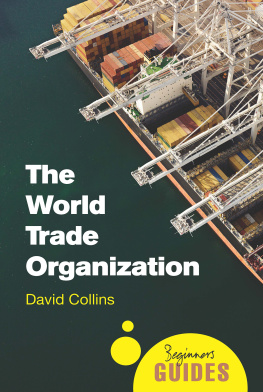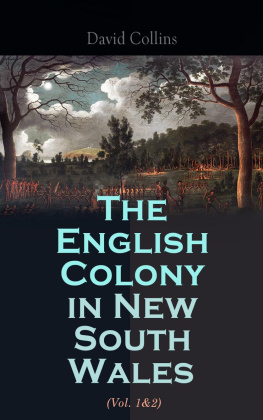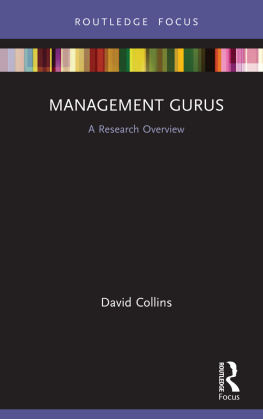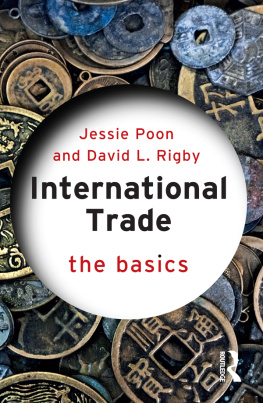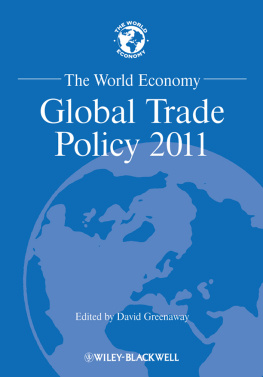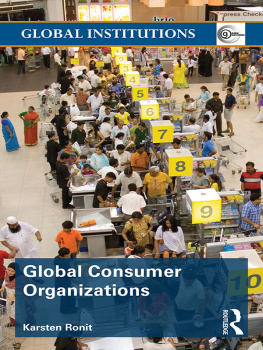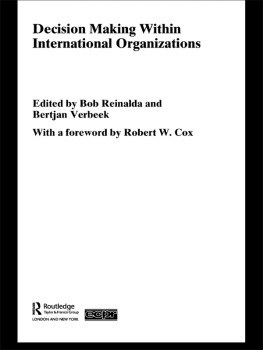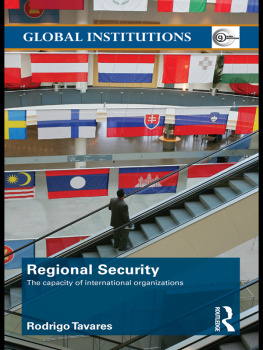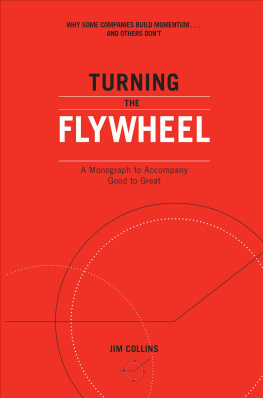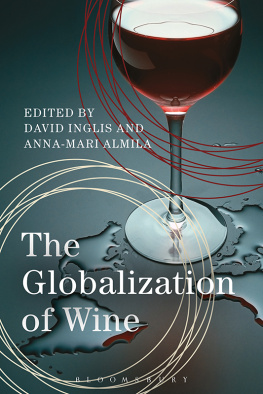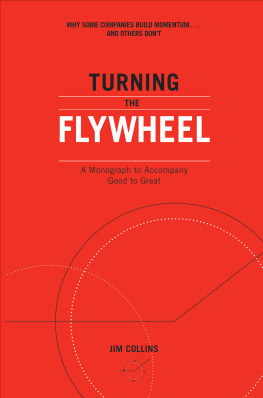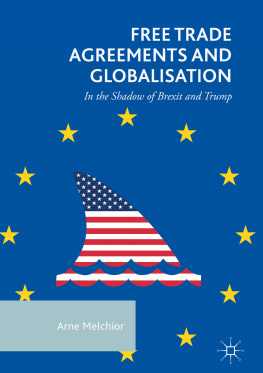
Commendable, clear and thoughtful. This will make it much easier for the non-expert to understand the organization.
David A. Gantz , Samuel M. Fegtly Professor of Law and Co-Director, International Trade and Business Law Program, University of Arizona
A concise and insightful introduction to the intricacies of a poorly understood institution. Using a jargon-free style and focusing on what matters most, this is an invaluable tool for anyone interested in learning what the WTO is about.
Dr Gabriel Gari , Senior Lecturer in International Economic Law, Centre for Commercial Law Studies, Queen Mary University of London


A Oneworld Paperback Original
Published in North America, Great Britain and Australia by
Oneworld Publications, 2015
This ebook edition published in 2015
Copyright David Collins 2015
The moral right of David Collins to be identified as the Author
of this work has been asserted by him in accordance with the
Copyright, Designs and Patents Act 1988
All rights reserved
Copyright under Berne Convention
A CIP record for this title is available from the British Library
ISBN 978-1-78074-578-7
eISBN 978-1-74074-579-4
Typeset by Silicon Chips
Oneworld Publications
10 Bloomsbury Street
London WC1B 3SR
England
Stay up to date with the latest books, special offers, and exclusive content from Oneworld with our monthly newsletter
Sign up on our website
www.oneworld-publications.com
Contents
ASEAN: | Association of Southeast Asian Nations |
BIT: | Bilateral Investment Treaty |
EPA: | Economic Partnership Agreement |
FDI: | Foreign Direct Investment |
GATS: | General Agreement on Trade in Services |
GATT: | General Agreement on Tariffs and Trade |
GDP: | Gross Domestic Product |
GSP: | Generalized System of Preferences |
GMO: | Genetically Modified Organism |
IMF: | International Monetary Fund |
MERCOSUR: | Southern Common Market |
NAFTA: | North American Free Trade Agreement |
NGO: | Non-Governmental Organization |
RTA: | Regional Trade Agreement |
SCM: | Agreement on Subsidies and Countervailing Measures |
SPS: | Agreement on Sanitary and Phytosanitary Measures |
TBT: | Agreement on Technical Barriers to Trade |
TRIPS: | Agreement on Trade-Related Aspects of Intellectual Property |
UN: | United Nations |
WTO: | World Trade Organization |
The World Trade Organization (WTO) is one of the most important and controversial organizations in the world. While it has helped bring millions of people out of poverty and raised standards of living worldwide, it strikes at the heart of what it means for a country to be independent and control its own destiny. As a lynchpin of globalization, the WTO allows us to enjoy products and services from around the world, but it lays bare the frailty of many industries, in some cases causing unemployment and even threatening social cohesion. Whether it should be seen as an agent of good or evil may depend on where you live and what you do, much as it does on what you buy and where it comes from.
How does the WTO function as a global organization which creates and enforces the rules of international trade between countries? What are the principal goals that the WTO seeks to achieve, and how have these created difficulties for its member countries as they adapt to the pressures of globalization? In this book, I will tackle these questions while focusing on the main legal obligations of WTO membership. I will also consider the economic justification for its rules and the ways in which these are balanced against national policy goals, such as economic self-sufficiency, environmental protection and cultural preservation. Even at twenty years old, the continued relevance of the WTO is under threat. This is possibly because of its over-enlarged mandate, the difficulties in ongoing negotiations for deeper trade liberalization among its 161 member countries and, perhaps most importantly, because of the growth of bilateral trade agreements like the Transatlantic Trade and Investment Partnership and the Trans-Pacific Partnership. Still, it remains a vital instrument of governance in the global economy.
Too often, discussion of the WTO descends into controversy surrounding the WTOs alleged detrimental impact on the global economy, especially on poor countries. While some of these accusations have grains of truth in them certainly some farmers in Africa would be able to sell more food if there were no agricultural subsidies in Europe I hope that my treatment of the rules and principles that underlie the WTO will allow you to form your own view of the organization and the merits of international trade. In that sense, this book will be neither a ponderous textbook nor a provocative rant against globalization. It will also not shy away from the harsh reality that, largely because of the WTO, many factory workers in the West have seen their jobs shipped overseas, while at the same time consumers like you and me have been able to get more bang for their buck on everyday things like clothes and electronics.
The WTO embraces the philosophy that free trade, or more accurately freer trade, is the route to economic progress. The opening paragraph of the treaty which established the WTO states that the purpose of the WTO is to raise standards of living worldwide, ensure full employment and a large and steadily growing volume of real income while allowing for the optimal use of the worlds resources. So, right from the outset, the WTO concedes that its goal is not free trade at all costs. Free trade is merely an instrument to achieve more important objectives, namely living well and with self-sufficiency. These are aims which themselves must be balanced against the need to safeguard the natural environment by avoiding depletion of the raw materials upon which this prosperity depends. The WTO treaty goes on to state that the benefits of trade should be shared by all countries, not only the rich ones, a clear recognition that unbridled competition can have harmful consequences for the unprepared and inexperienced. This qualification is particularly important because more than two thirds of the WTO member countries are classified as developing. The extent to which the WTO has succeeded in achieving these goals is a matter of debate as well as the subject of empirical analysis.
Although the WTO itself is only twenty years old, international trade has been around for many centuries. The founders of the WTO cannot take credit for inventing it, or even for being the first to recognize its value. Economic historians often cite the Phoenicians as the first international traders, plying the waters of the eastern Mediterranean Sea on sailing ships from about 1500 BCE to exchange things like dyes and wood with settlements throughout the region. Centuries later the Silk Road was established as a land trading route between eastern Europe (then controlled by the Roman Empire) through the civilizations of Middle East all the way out to the Pacific Ocean. This crucial conduit through the mountains and deserts of central Asia allowed the trading of commodities like spice and silk, making a significant contribution to the economic development of civilizations like Persia, China and Europe itself. By the end of the Middle Ages, seafaring had become the dominant means of international trade, with ships from western European kingdoms setting out across the worlds oceans to bring cargos of precious metals and commodities like tea to ports in London and Amsterdam from Africa and the Far East, just as Western merchants introduced new crops and animals to China, Japan and the East Indies.

